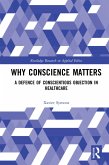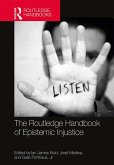The Ethics of Microaggression is a much needed and clearly written exploration of this pervasive yet complex problem. What is microaggression and how do we know when it is occurring? Can we be held responsible for microaggressions and if so, how? How has social media affected the problem? What role can philosophy play in understanding microaggression? Regina Rini explores these highly topical and controversial questions in an engaging and fair-minded way, arguing that an event is a microaggression precisely because it causes a marginalized person to experience an ambiguous encounter with oppression. She illustrates her argument with compelling examples from media, politics, and psychology and explains the significance of essential concepts, such as media representation, reparative renaming, and safe spaces.
The Ethics of Microaggression explains what microaggression is and offers strategies for combating it. Assuming no prior knowledge of the topic or philosophy, it demystifies a controversial and extremely important topic in clear language. It is ideal for anyone coming to the topic for the first time and for students in philosophy, gender studies, race theory, disability theory, and social and political philosophy.
Dieser Download kann aus rechtlichen Gründen nur mit Rechnungsadresse in A, B, BG, CY, CZ, D, DK, EW, E, FIN, F, GR, HR, H, IRL, I, LT, L, LR, M, NL, PL, P, R, S, SLO, SK ausgeliefert werden.
"This is a truly fascinating book, chockful of insights, engaging narratives, fun turns of phrase, and incisive argumentation. An excellent text for philosophy courses (on ethics, social justice, disability, feminist philosophy, and philosophy of race), which is also frank and straightforward enough to engage anyone interested in how we should proceed toward a more just and humane society." - Alex Madva, California State Polytechnic University, Pomona, USA
"This is a truly fascinating book, chockful of insights, engaging narratives, fun turns of phrase, and incisive argumentation. An excellent text for philosophy courses (on ethics, social justice, disability, feminist philosophy, and philosophy of race), which is also frank and straightforward enough to engage anyone interested in how we should proceed toward a more just and humane society." - Alex Madva, California State Polytechnic University, Pomona, USA









